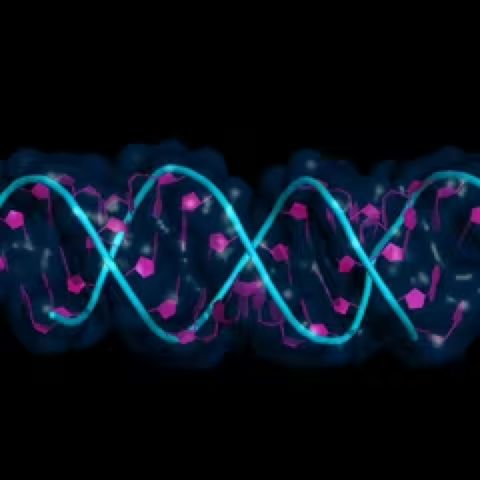n the clash of nature versus support, sustain has a newcomer: epigenetics – got from sub-atomic science to give logical heave to the contention that qualities are not predetermination. The staggering proof for hereditary consequences for our mental qualities evokes a fatalistic vision for some individuals, one where we are captives to our science, not in charge of our own mind and our own way of behaving. Epigenetics, an instrument for managing quality articulation, appears to offer a getaway from hereditary determinism, a way to rise above our natural inclinations and change what our identity is.
This view is very much addressed by Deepak Chopra MD and Rudolph Tanzi MD, teacher of nervous system science at Harvard Medical School, who compose:
Consistently brings new proof that the psyche body association arrives at directly down to the exercises of our qualities. How this movement changes in light of our background is alluded to as “epigenetics”. No matter what the idea of the qualities we acquire from our folks, dynamic change at this level permits us practically limitless impact on our destiny.
This trust emerges from research that proposes that specific kinds of encounters in creatures can for sure outcome in an epigenetic mark being joined to specific qualities, with dependable impacts on conduct. Epigenetics subsequently gives an unthinking qualifications to the possibility that we can supersede or overwrite the qualities that would somehow direct our inborn characteristics and inclinations.
There is an innate inconsistency in this thought, notwithstanding, in that the system that presents responsiveness to encounter is assumed, simultaneously, to secure the resultant changes. There are even examinations proposing that such epigenetic imprints can be passed down from guardians to their youngsters and, surprisingly, their grandkids, preparing them to act with a particular goal in mind in light of encounters that their precursors had. This is an unexpectedly deterministic thought – that an individual’s conduct would be so emphatically impacted by their shuns’ encounters – particularly for a component that should intervene limitless social adaptability.
To assess the cases that epigenetics can break us liberated from our foreordained mental characteristics, we want to take a gander at the subtleties of what our qualities mean for those characteristics, and what epigenetics truly involves.

We as a whole have encoded in our genome a program for making a person, with a human cerebrum, that presents our overall human instinct. Yet, that program shifts between individuals on account of the a huge number of hereditary contrasts we as a whole convey. So the program for making my cerebrum contrasts from the program for making yours. What’s more, the exact way that the program plays out changes from one hurry to another, so the result varies even between hereditarily indistinguishable twins. So our singular nature is an interesting minor departure from the general subject.
We come wired in an unexpected way, with natural inclinations influencing our knowledge, character, sexuality and, surprisingly, the manner in which we see the world. These natural mental qualities don’t be guaranteed to decide our conduct on a second to-second premise, however they truly do impact it, both out of the blue and by directing the improvement of our propensities and the rise of different parts of our personality over our lifetime. Yet, can epigenetics truly overwrite these hereditary impacts on our brain science?
In sub-atomic science, epigenetics alludes to a cell component for controlling the statement of qualities. It is especially significant for the age of various sorts of cells during early stage advancement. Every one of our cells contain a similar genome, with around 20,000 qualities, each encoding a particular protein, like collagen, liver catalysts or synapse receptors. Various sorts of cells need an alternate subset of those proteins to take care of their particular responsibilities. Thus, in every cell type, a few qualities are “turned on”, that is, the quality is deciphered by a catalyst into courier RNA, which is then converted into the suitable protein. Others are “switched off”, so that piece of DNA is simply staying there and the protein isn’t really being made.
While an incipient organism is creating, certain phones will get a sign to become muscle cells or nerve cells or skin cells. That sign prompts the outflow of certain qualities and the suppression of others. In any case, those signs are much of the time transient and don’t continue after improvement, while the cells actually need to remain muscle cells or skin cells or nerve cells. Epigenetic instruments include bundling the DNA into dynamic or idle states, to such an extent that the underlying profiles of quality articulation are kept up with over the lifetime of the cells. So it goes about as a sort of cell memory. The epigenetic condition of a cell might in fact be gone down through cell divisions.
Misconstrued
Sadly, a few terms in that portrayal are available to confusion. First is the expression “quality” itself. The first significance of the word came from the study of heredity and alluded to some actual thing that was passed from guardians to posterity and that controlled some perceptible characteristic. We currently realize that qualities in the feeling of heredity are really varieties in the arrangement of DNA coding for some protein. For instance, the “quality for” sickle-cell sickliness is actually a transformation in the quality that encodes the protein hemoglobin. We as a whole have similar arrangement of qualities, simply various forms of them.
Second, and related, when we say a quality is “communicated” we intend that with regards to sub-atomic science. It might seem as if it is implied with regards to heredity, like it alludes with the impact of a hereditary minor departure from some characteristic being either clear or not. Be that as it may, these are not by any stretch exactly the same thing. In all actuality, the connection between articulation levels of some random quality and our characteristics is ordinarily exceptionally complicated and roundabout.
Third, the expression “cell memory” unavoidably recommends that epigenetics may underlie mental memory thus structure the premise of our reaction to encounter. However powerful changes in quality articulation are expected for the arrangement of recollections to occur, there is no proof that the actual recollections are put away in examples of quality articulation. All things considered, they are encapsulated in changes in the strength of associations between nerve cells, interceded by extremely neighborhood, subcellular changes in neuroanatomy.
At last, the possibility that epigenetic changes of the DNA can be “passed down” is expected concerning cell division however makes it sound like epigenetic reactions to experience can be passed down from a creature to its posterity. However such a component exists in plants and nematodes, there is no persuading proof that this is the situation in well evolved creatures, particularly not in people.
Really whimsical
We should think about a straightforward model. On the off chance that I invest some energy out in the daylight, I will foster a tan. That is basically an epigenetic cycle, including changes in quality articulation that increment the creation of melanin in my skin, bringing about obscuring of the complexion. Here, there is a straightforward, immediate and close connection between the statement of the important qualities and the characteristic of skin tone. This cell reaction to encounter endures from weeks to months, yet at the same not longer. Furthermore, it won’t be passed down to my youngsters or grandkids.
There are a couple of brain capabilities where epigenetic impacts on few qualities might be significant, like guideline of stress responsiveness and illicit drug use, for instance. Be that as it may, mental qualities like insight and character not entirely settled by the continuous activity of a couple of qualities.
To begin with, these characteristics are not set in stone by any means – a significant part of the variety is non-hereditary in beginning. Likewise, the hereditary impacts emerge from variety in a huge number of qualities, and this variety for the most part influences the cycles of mental health. These impacts emerge not on the grounds that our qualities are being communicated with a particular goal in mind, at this moment, but since they were communicated with a specific goal in mind during improvement.
That prompted our cerebrums being wired with a specific goal in mind, to such an extent that our different brain circuits will generally work with a specific goal in mind, bringing about contrasts in mental capabilities and dynamic in different situations, appearing as trademark examples of conduct. That is an outrageously lengthy and complex street from qualities to mental characteristics. The possibility that we can change those characteristics by modifying the statement of certain qualities in grown-ups – like getting a suntan – is thusly really whimsical.
Conjuring the phone system of epigenetics doesn’t make it any less whimsical. Nor is there any genuine proof that encounters like injury cause epigenetic changes that influence a victim’s kids or grandkids, behaviourally or in differently.
Notwithstanding, this implies that we are not generally hereditarily customized automata whose conduct is permanently set up from birth. We surely have inborn inclinations, yet these give just a benchmark to our way of behaving. We are, as a matter of fact, permanently set up to gain for a fact – that is the manner by which we adjust to our specific conditions and how our examples of conduct arise. However, this happens through changes in our neuroanatomy, not in that frame of mind of quality articulation.
Nor are those designs fixed. Change stays conceivable. We can in any case control our way of behaving. We can attempt to overrule and reshape our propensities. We can somewhat rise above our own subliminal tendencies. This requires mindfulness, discipline and exertion. The one thing it doesn’t need is epigenetics.
